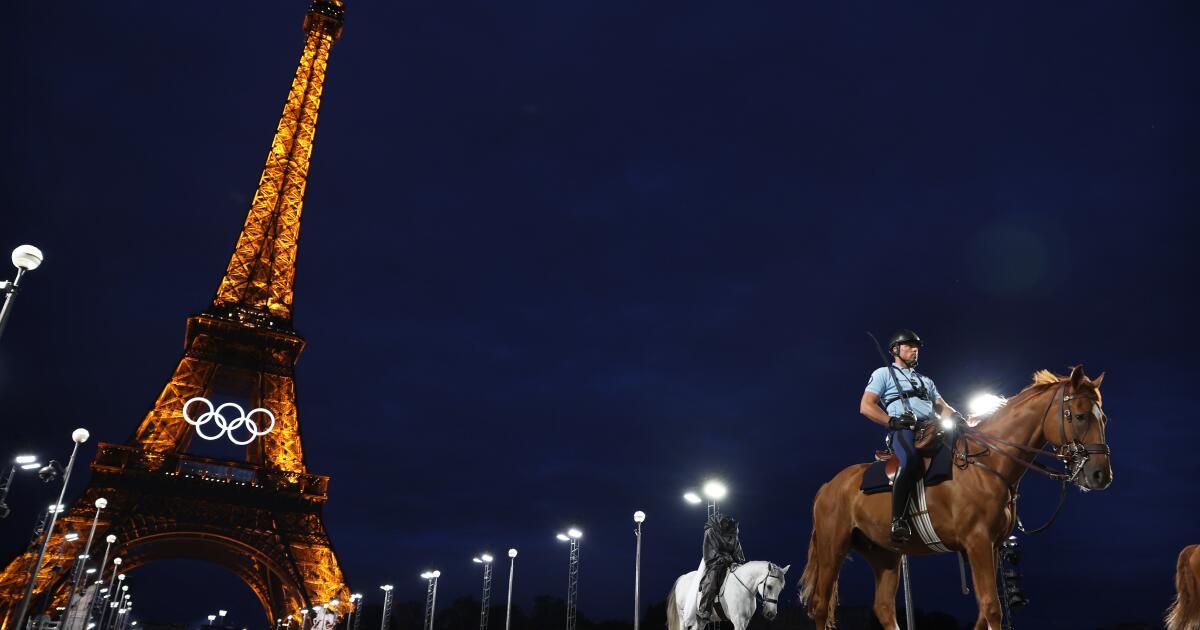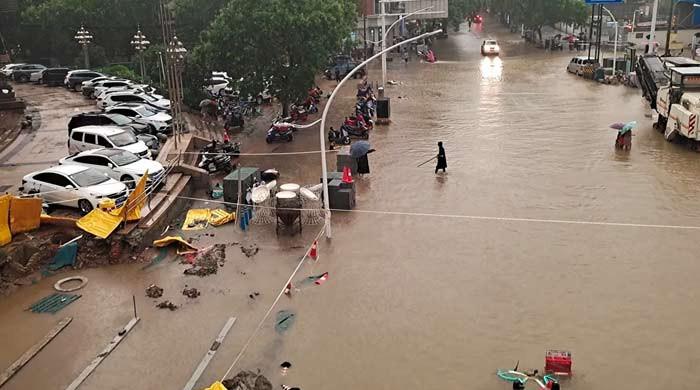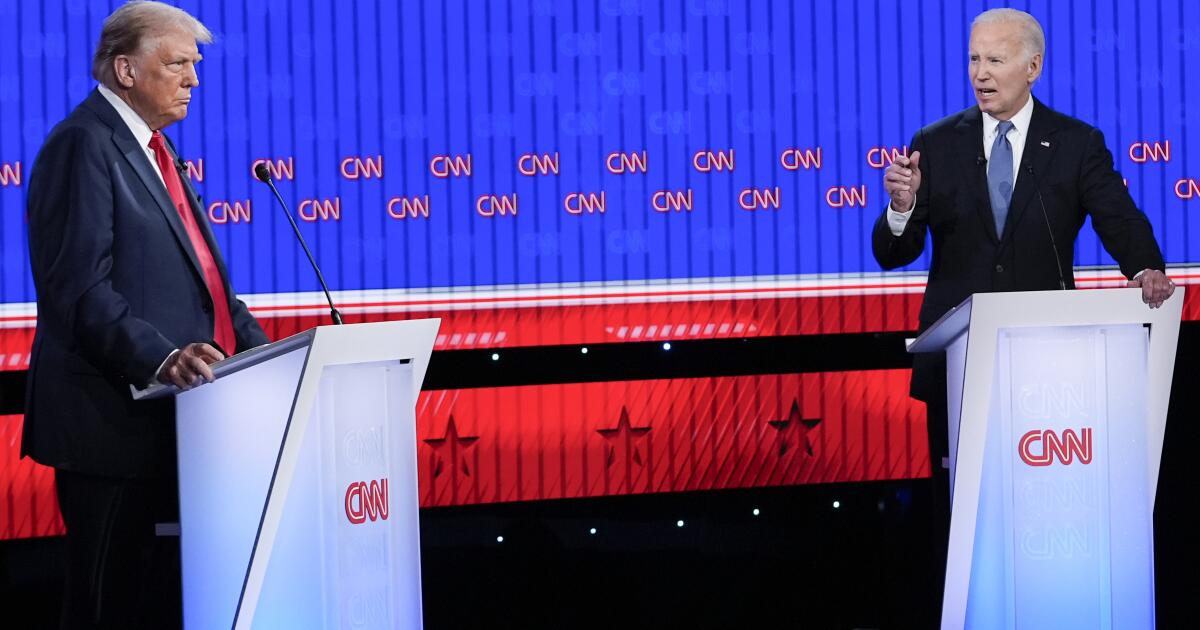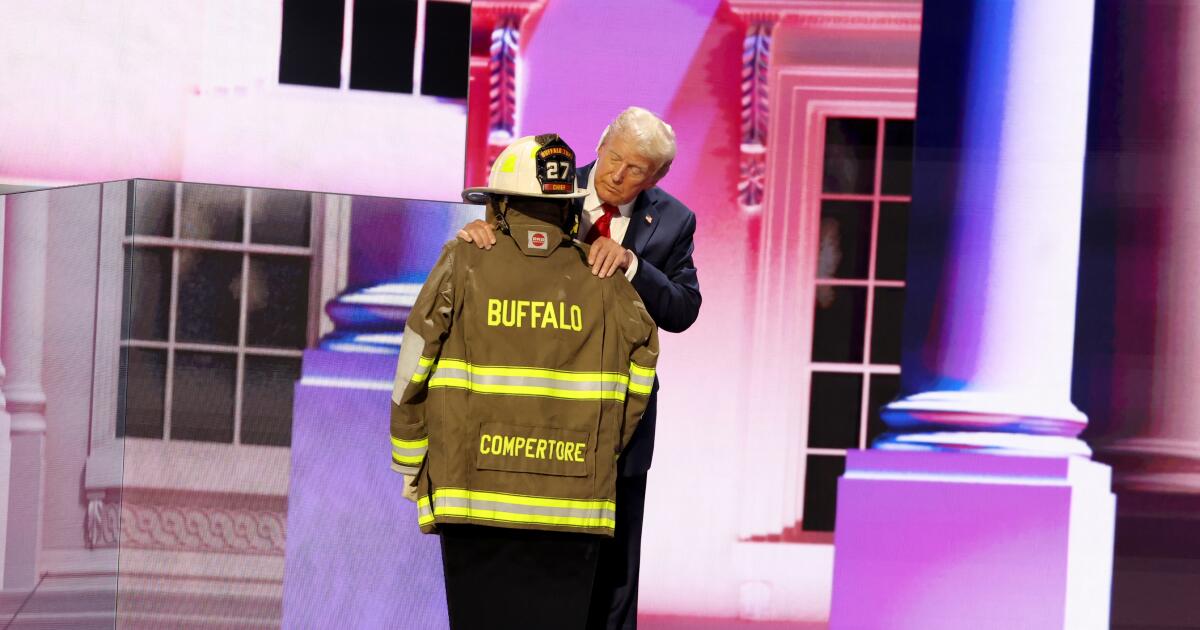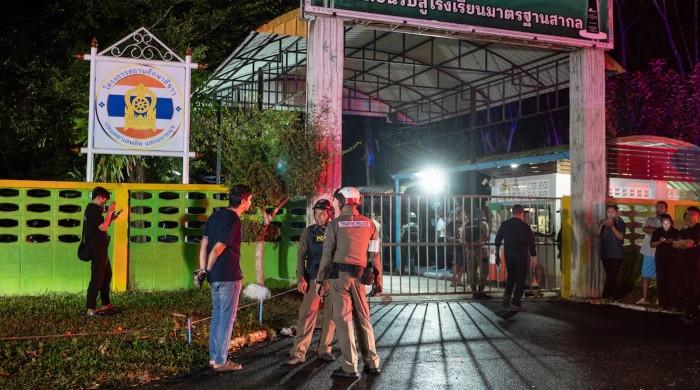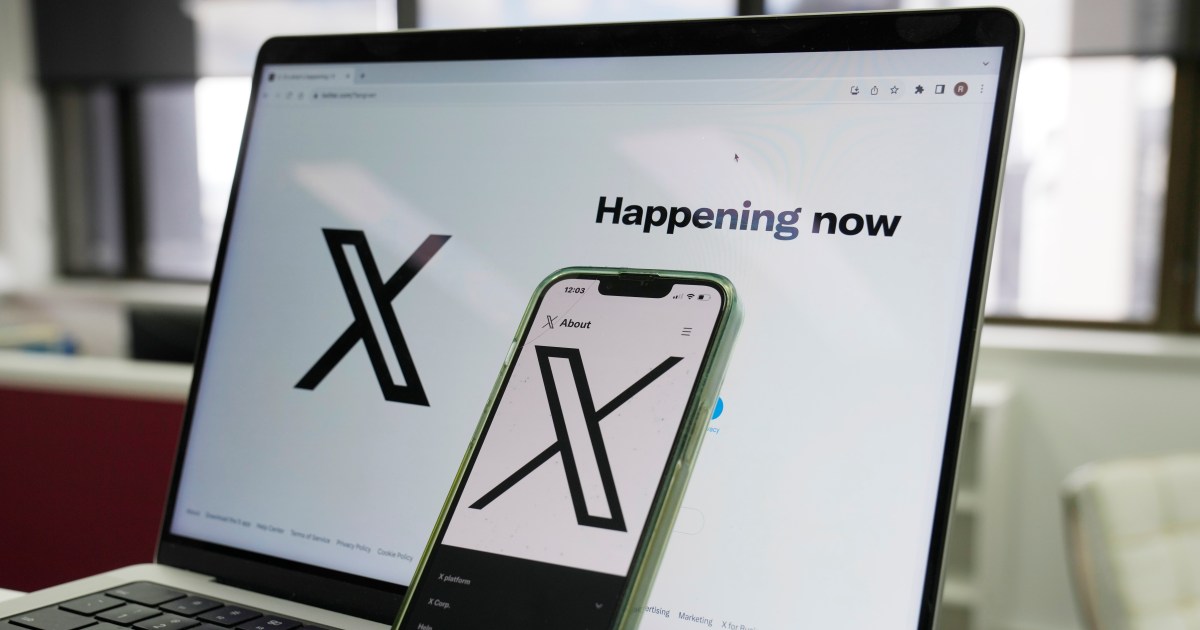Soldiers patrol along the Seine River, dressed in camouflage and wearing blue berets, with large rifles slung over their shoulders. National police stand guard at checkpoints, turning away those who want to stroll along the riverbank.
A four-mile stretch of this iconic river, in the heart of the city, is blocked.
The 2024 Paris Olympics will take place on Friday in Paris with an unusual opening ceremony. In a departure from the usual stadium spectacles, dancers, musicians and athletes will sail down the Seine in a flotilla of boats while hundreds of thousands of spectators watch the spectacle from bridges and stands.
With a glittering Eiffel Tower in the background, it promises to be visually impressive – and poses a huge security headache.
Paris 2024 Summer Olympics
“If there is one event that is under pressure, it is the Olympic Games,” said Christophe Dubi, an executive at the International Olympic Committee. Given the threat of terrorism, officials must be “on their toes, on their toes, and on their courage.”
The gamble seemed to pay off for those planning the Games, who sought to transform Paris into a vast playground, building temporary venues at the Palace of Versailles, the Grand Palais and other iconic sites.
Even so, the proposal for a maritime opening surprised President Emmanuel Macron.
“And I can tell you that at first,” Macron said during a reception at the Élysée Palace this week, “it seemed like a crazy and unserious idea.”
The challenges were obvious. Organizers needed to protect some 90 boats leaving from the Austerlitz bridge and passing by the Île Saint Louis and the Île de la Cité on a 6-kilometer route lined with apartment buildings, hotels and offices on either side.
“As with every project, there is the dream, which I loved,” Thomas Jolly, the ceremony’s artistic director, told the Olympic News Service. “And then there is the reality.”
1
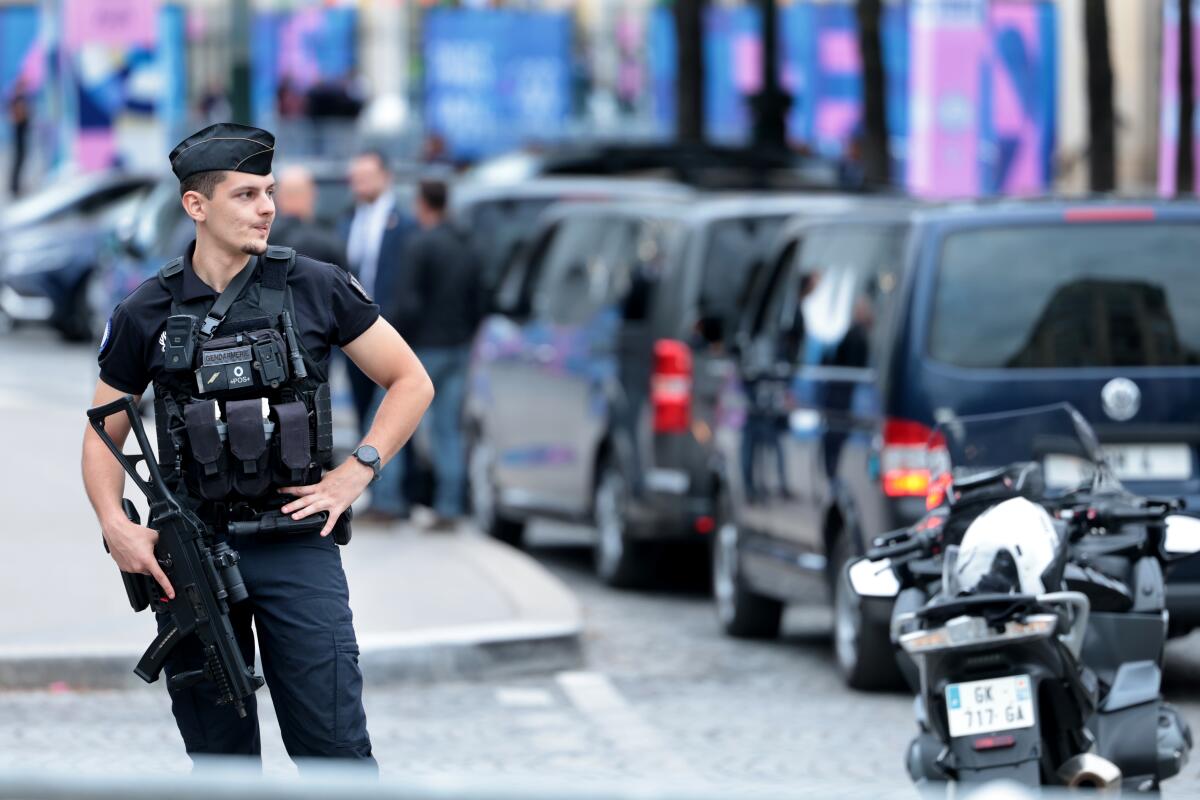
2
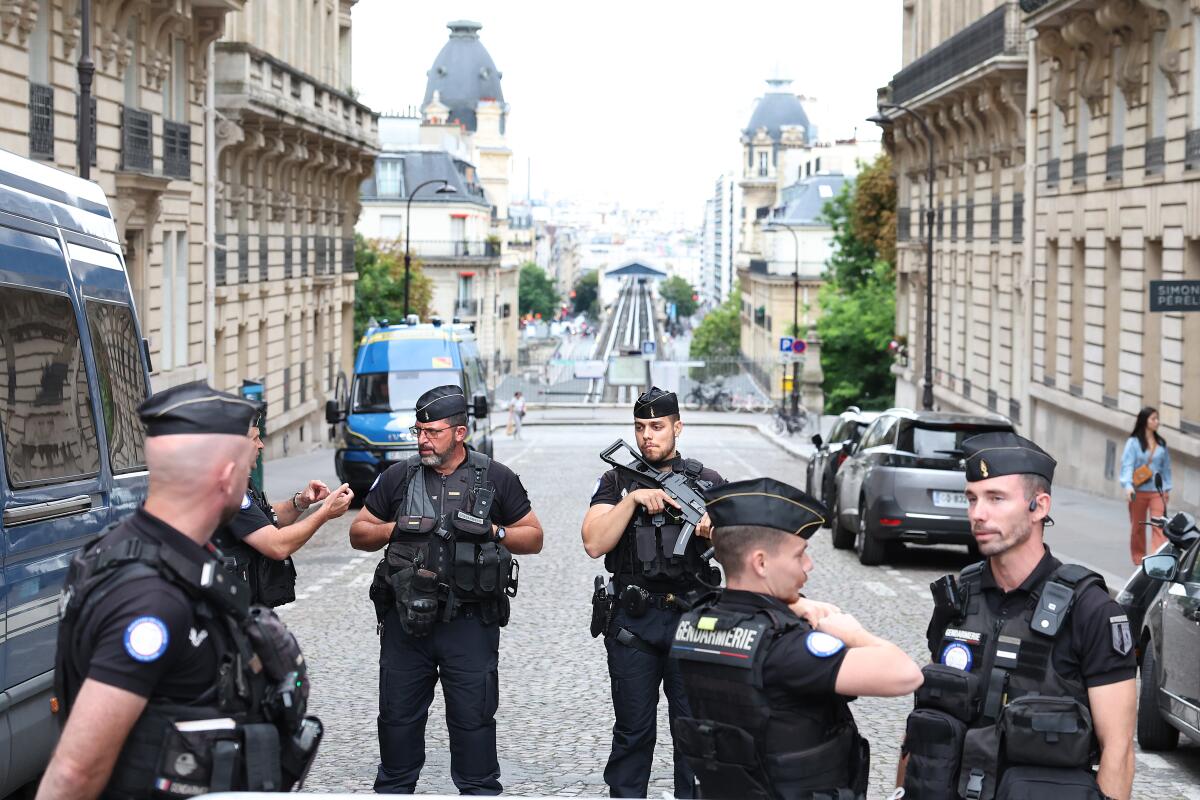
1. A police officer patrols a street in Paris three days before the official start of the Paris Olympic Games. 2. Police officers talk to each other on a street in Paris before the start of the Summer Games.
French Olympic officials, already nervous about the war between Israel and Hamas and the resulting street protests, scaled back their plans in early March, cutting the potential 600,000 ticketed spectators to 326,000.
Later that month, after Islamic terrorists claimed responsibility for an attack that killed more than 130 people at a Moscow concert hall, France raised its terror alert to the highest level. Macron acknowledged that a contingency plan was in place to move the ceremony to the national Stade de France stadium.
Despite everything, the organizers went ahead.
“No country has told us it does not want to participate,” Interior Minister Gerald Darmanin told the French Senate. “They have confidence in our organisation.”
Last week, law enforcement set up a multi-layered perimeter around the Seine using a system created after the 2015 attack on the offices of satirical magazine Charlie Hebdo that left 12 people dead.
“In practice, it’s really simple,” said Mike Duignan of Trivandi, a consulting firm run by former top executives of the London 2012 Olympics. “There are very well-established techniques on how to do it.”
The French have recruited reinforcements from dozens of countries (and the Los Angeles Police Department) to deploy some 35,000 officers and 10,000 soldiers on the streets. Vehicle and pedestrian traffic has been limited; some subway stations have been temporarily closed.
Residents living and working in buildings along the river have been issued security cards.
“You can move around, but with restrictions,” the authorities have warned. “Searches and bag checks are mandatory.”
According to the Associated Press, in separate incidents last week, French authorities arrested two men suspected of plotting to disrupt the Games. Cyberterrorism has also been a concern.
Security will be stepped up on the night of the ceremony, with Darmanin announcing the closure of Paris airspace within a 90-mile radius. An additional 10,000 police officers will be added to protect the river and the Trocadero, where the participants will disembark for the formal rites.
Despite the recent assassination attempt on former President Trump, Duignan believes large outdoor events can be protected, but there could be a price to pay.
“The question is to what extent it will affect the atmosphere and the spirit of the party,” he said.
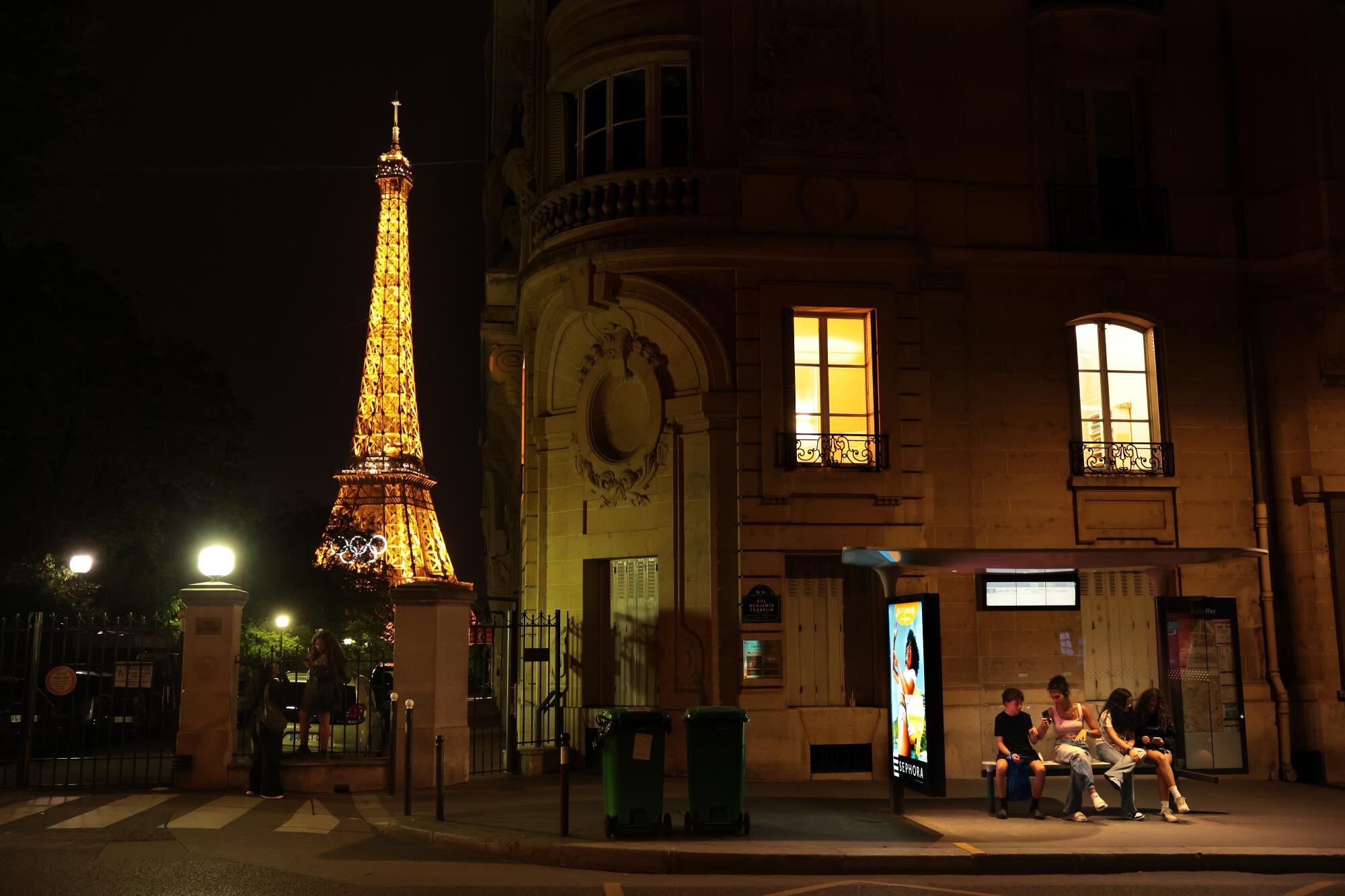
People sit at a bus stop in Paris on Tuesday evening, three days before the start of the Olympic Games.
(Wally Skalij / Los Angeles Times)
Parisians have complained about restrictions on their ability to move freely. One local taxi driver told politico.eu: “It's unbearable, we feel like prisoners.” The athletes taking part in the ceremony appear to have a different opinion.
American skater Jagger Eaton said he thinks arriving by boat “will be amazing.” One member of the French contingent did not seem concerned about safety.
“Everyone wants to experience this moment,” said handball player Luka Karabatic, “because it will be unique.”

